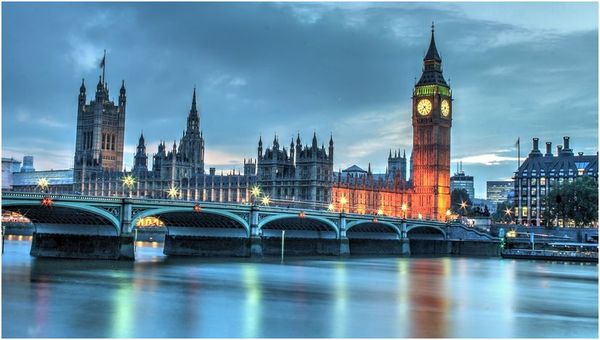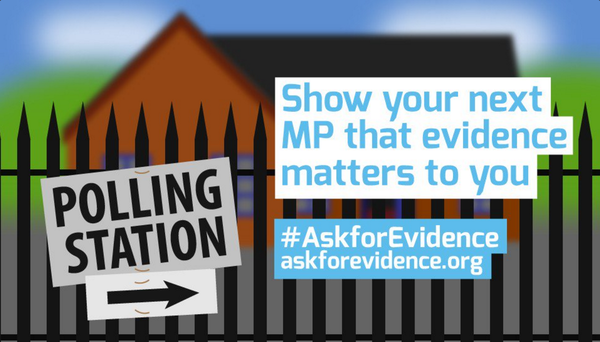Tom asks for the evidence behind the 2019 election manifestos
Politicians like to claim a lot of things, from how they’ve reduced unemployment to how they plan on investing in renewable energy, but how prepared are they to provide the [...]

As an intern at Sense about Science, I was asked before the general election to find out how the three main parties in the UK (Conservatives, Labour and Liberal Democrats) would respond to being asked for evidence about the claims in their manifestos.
Of course, policymaking is about finding ways to influence and organise society, and manifestos are a combination of politics, values and pragmatism. So some claims about why a policy is being introduced cannot be tested against evidence, and some can.
But we have a right to know when policymakers are simply asserting beliefs and when they are making claims about the facts. That is why, in politics, asking for evidence where you’d expect evidence (usually when a claim could be proved right or wrong) is so important. After reading through articles and the party manifestos, here are the testable-sounding claims I picked:
Conservatives: Having a mental health expert in every school will help fight mental illness (the Times)
Liberal Democrats: Introducing a legal, regulated market for cannabis will break the grip of the criminal gangs and protect young people (Buzzfeed)
I started looking for evidence by emailing my local candidates, as well as candidates quoted in articles about the policies. You would hope that candidates would have the facts readily available to back-up statements in the manifestos. But instead, I was directed to their respective party headquarters. So I then repeatedly tried calling the three headquarters. Both Conservative and Labour HQs eventually transferred me to their press offices, who then never followed-up. I did get a response from the Liberal Democrats, both by email and Twitter, from their head of policy, Christian Moon. He pointed me towards some articles and LibDem commissioned research that I could look into.
It shouldn’t be that hard to get a simple answer to a simple question. But political parties will only feel the responsibility to make their evidence public if voters start asking them for it. That’s as true during an election as it is during the ordinary course of a parliament.
And the evidence for the policies? Well, after the election I decided to do a bit of investigating myself, so here’s what I found ...
Conservatives: Having a mental health expert in every school will help fight mental illness
I found a debate pack (the House of Commons library is a brilliant resource, free to all) put together for a parliamentary debate on children’s mental health in schools, with evidence from different mental health charities, useful statistics and quotes from leading mental health workers. Broadly, it looks as if there is a need for mental health experts in schools according to professionals in the field, and the evidence base is growing. The government already launched a pilot of mental health experts in schools in 2016, so hopefully the results of that pilot will inform decisions in future.
Labour: Stopping all advertising for foods high in fat/salt/sugar will reduce children’s exposure by 82%
I came across a POSTnote from the Parliamentary office of science of technology (another great resource), looking into sugar and public health. It’s based on a literature review and interviews with a range of stakeholders, and is extensively peer-reviewed, which makes it a good summary of more reliable sources. Labour’s claim appears to have come from a study by Ofcom estimating the impact of different policy options on broadcasters, using a model, which found that banning ads before 9pm did in fact lead to an 82% reduction in child’s exposure to these ads. It is very hard to assess how good Ofcom’s study is without peer review, but at least the Labour party’s source for the claim is clear.
Liberal Democrats: Introducing a legal, regulated market for cannabis will break the grip of the criminal gangs and protect young people
The report commissioned by the Liberal Democrats argues that outcomes from drugs decriminalisation around the world back up this claim. I emailed Jon Caulkins, a drug policy expert, for some more explanation. He said: “No, legalisation of only cannabis could not possibly break the grip of criminal gangs because cannabis is just one drug. They make lots of money from other drugs, and from a lot of non-drug activity”. So it seems to me that legalising cannabis would probably help reduce drug dealers revenue but it’s unlikely it will make a significant difference in the way the Lib Dems claim.
On the whole, I was pleasantly surprised at the amount of evidence I could find for the different statements. Nothing here is decisive but there are clearly lively debates being had, and evidence is being generated and discussed. But without my experience at Sense about Science I doubt I’d have been able to find it. As it is, political parties let down voters by making the evidence so hard to find.
Photo credit: www.africablogging.org

Politicians like to claim a lot of things, from how they’ve reduced unemployment to how they plan on investing in renewable energy, but how prepared are they to provide the [...]

On 1st November 2016 one hundred people went to parliament. They listened to 15 stories from people across the country on why evidence matters to them, and heard responses from [...]
The team at GOV.UK want to know how they can better serve people who are attempting to hold the government to account, and understand the reasoning behind government decisions. Whilst you [...]

If you haven’t yet signed an online petition yourself, no doubt you’ve seen a few doing the rounds on social media. Their popularity reflects an increasing appetite for engagement in [...]

This will be an unusual election, and there’s a danger that candidates and parties will see backing up claims with evidence as less of a concern. But we can all [...]

“Marry before having kids and you’re less likely to split.” That’s the advice given as a result of a new report by the Marriage Foundation and covered in the Daily Mail and [...]